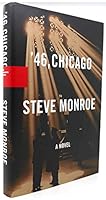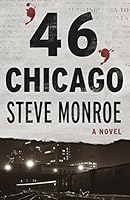Description
Crime fiction readers who insist that the good guys win and the bad guyslose, and that you ought to at least be able to tell the two apart, should steera wide course around Steve Monroe's '46, Chicago. Moral compromise andrelativism are the very foundations of this somber yet compulsively driving yarnabout power and greed and the corruption they engender.Gus Carson used to be as mendacious and brutal a cop as the Windy City couldproduce. But after barely surviving a World War II Japanese submarine attack inthe Pacific, he's turned positively respectable. "No fights, no bribes, noextortion," his superior recalls, approvingly, "not even a restaurant ownercomplaining that you demanded free doughnuts and coffee." Then one night, Carsonshoots a black man who's just killed a white lawyer in a brothel, and he'ssuspended from the force--just in time to go to work for a Republican mayoralhopeful, who promises him reinstatement and $500 if he can find a kidnappedblack racketeer named Ed Jones. Sounds straightforward enough, except thatCarson suspects the attorney's death and the Jones case are connected. To whosebenefit, though? And how do these crimes relate to an underworld struggle forcontrol of Chicago gambling?As he did in his first novel, '57, Chicago, Monroe bringsdistinction to a fairly conventional noir plot. His juxtaposition ofcaviar-class white and worker-class black cultures adds depth to thisoccasionally violent drama, his exposure of Carson's conscience is patiently andconvincingly done, and some of the dialogue here is sharp enough to cut lips.'46 Chicago treads where more practiced detective novelists, such as MaxAllan Collins, have already been, but still leaves tracks worth following.--J. Kingston Pierce




 Amazon UK
Amazon UK